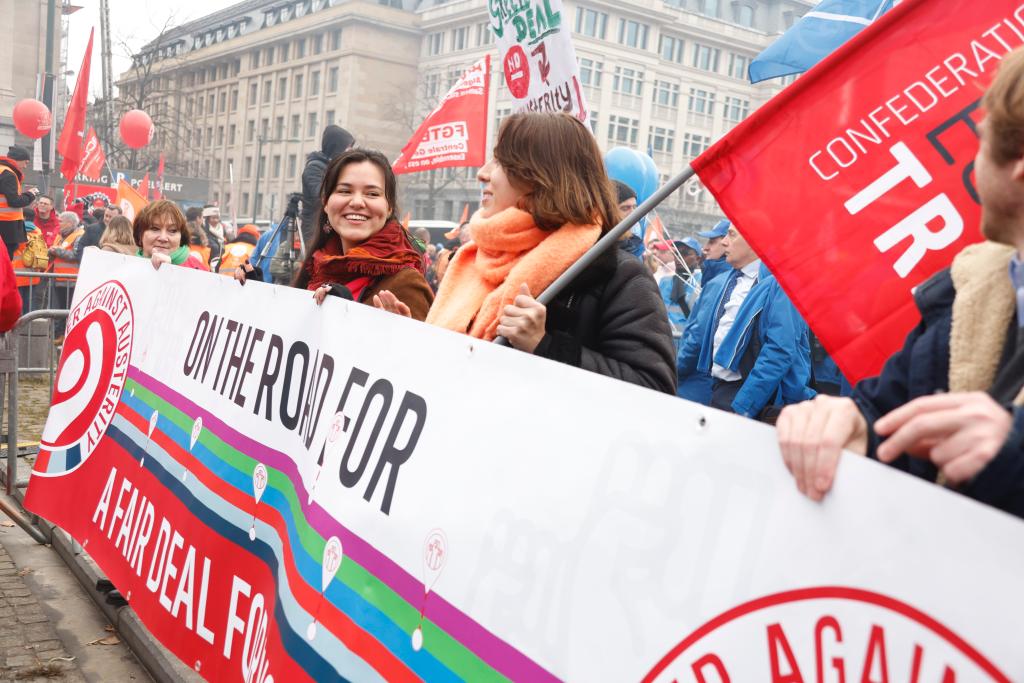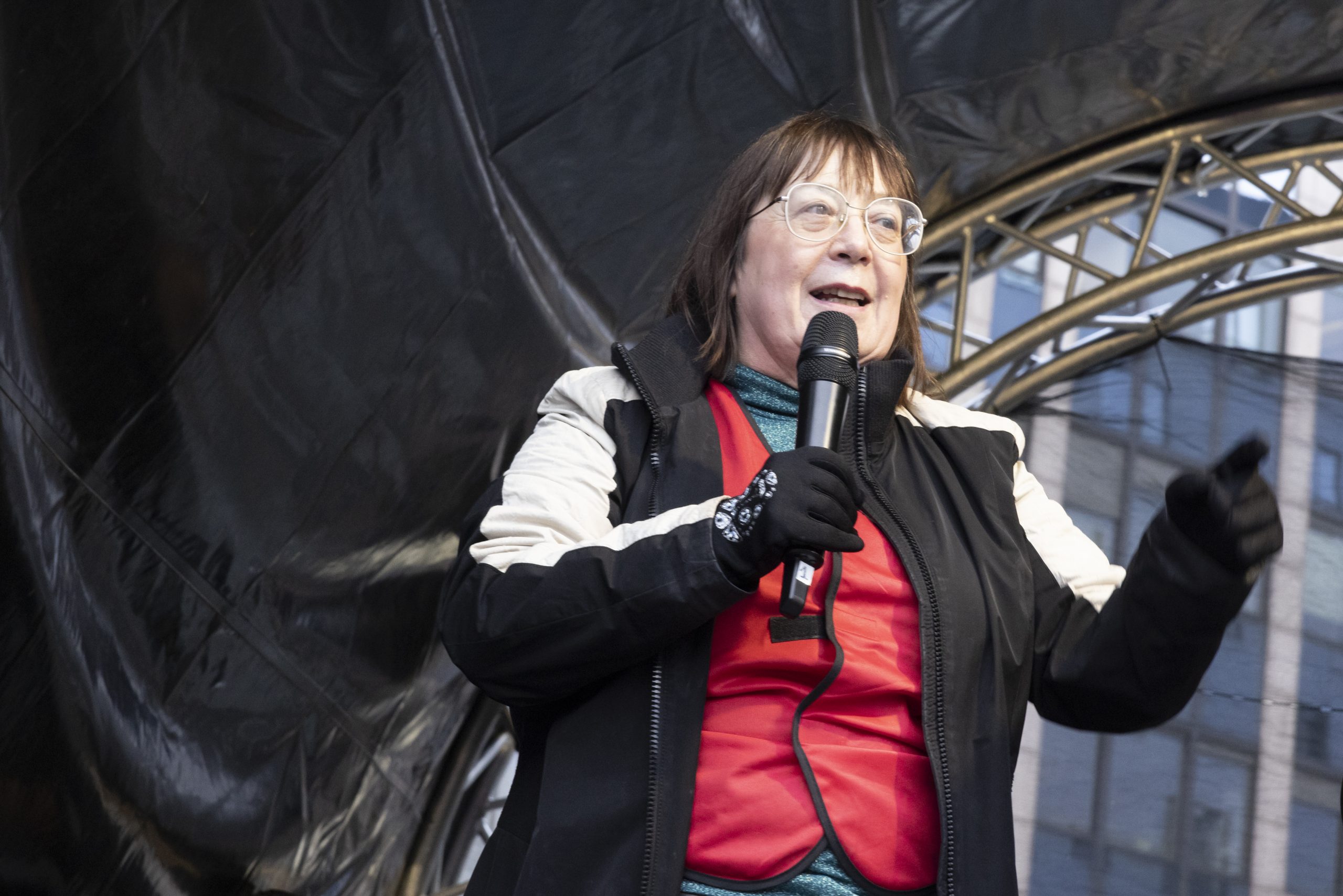A May Day message from ETUC General Secretary Esther Lynch.

May Day is the moment when we celebrate the collective power of working people.
No matter where we’re from, what job we do or what our gender is, sticking together is how we have won in the past and how we will win in the future.
The mobilisations that will take place across Europe today will demonstrate once again that there is power in a union.
And my message to workers this year is that we must make that power felt at the ballot box as well as in the streets and in our workplaces.
Because our ability to bring about change at election time has been all but written off by some people who talk about the results of next month’s European elections like a foregone conclusion.
Before campaigning has properly begun or any votes have been cast, there is a narrative being pushed that the far-right have already won the elections and control the parliament.
It is therefore, according to its proponents, naïve to make the case for policies which will improve people’s lives.
Let’s be clear: a far-right surge in these elections is a real and dangerous prospect.
Our analysis of far-right voting behaviour in this European Parliament term shows that they have consistently voted against the interests of working people.
Whether the issue was fair pay, creating quality new jobs or people’s safety at work, the far-right sided with big business not ordinary working people.
I don’t underestimate the threat that even more far-right MEPs would pose.
But it is within our power to prevent this outcome and instead impose the real priorities of working people.
The European Parliament’s own polling shows the fight against poverty and social exclusion is the number one priority of citizens for the election campaign.
That is followed by public health and support to the economy and the creation of new jobs.
It shows clearly that there is a hunger for a social Europe that improves their quality of life not anti-worker politicians who will use culture wars to mask business as usual.
The poll though also shows how we could end up with the latter.
While workers, the unemployed, students and retired people are more likely to prioritise poverty, public services and jobs, they are less likely to vote.
Meanwhile bosses are most likely to say deregulation and less trade union rights should be a priority but are more likely to vote.
To put it bluntly: your boss will definitely be voting and that’s why you should as well.
That is the only way to ensure that we have a parliament that acts on the priorities of the many and not the few.
One of the most pernicious myths peddled in the populist era is that all politicians are the same.
We only need to take one look at the far-right’s voting record to see that’s not the case.
But our research also shows there are plenty of positive reasons to vote too.
The ETUC’s European election manifesto sets out 12 commitments that together would add up to a fair deal for workers.
“All across Europe, trade unions were at the heart of ending voting rights based on wealth and property and winning universal suffrage through demonstrations and strikes.”
They include transformative measures like guaranteeing trade union rights, cutting off public funding for companies which refuse to negotiate fair pay with trade unions, maximum working temperature limits to prevent workers paying the price of climate change with their lives, or an enforceable right to disconnect from work and a just transition directive to guarantee workers and their trade unions a say in how change is managed, jobs are protected and a right to training delivered.
We used our manifesto as a yard stick against which to measure the democratic groups standing in the European elections and once again found not all politicians are the same.
We found the progressives, meaning the Socialists and Democrats, the Left and the Greens/EFA groups are far more likely to back policies which would improve the lives of working people than other groups.
The only problem with progressives in the European Parliament is that there aren’t enough of them.
The right want you to believe that this will be the case in the next Parliament too. That the race is already run. But it’s not true. It is in our hands to change that.
May Day always serves as a reminder of the power that working people have when we come together, whether it’s in our workplaces, in the streets or at the ballot box.
Let’s not forget that the right to vote for ordinary people was one of the first great battles of the trade union movement in Europe.
All across Europe, trade unions were at the heart of ending voting rights based on wealth and property and winning universal suffrage through demonstrations and strikes.
That’s why mobilising in next month’s European elections is the logical extension of our celebrations today.
Let’s use our collective power to stop the far-right and put into power people who will act on the real priorities of working people.
